Moving from P7 to S1 is a big step for kids to take. New school, new friends, new teachers, new things to learn. And it’s also the time when you may start to notice your little girl or boy starting to grow up. And while it’s lovely seeing them finding their feet and becoming more independent, this can also be a scary time for parents. How can we protect our children and keep them safe, while also giving them space to grow and learn as they make the move from being little kids to becoming teenagers?
The good news is all the things you’re doing now to help your child feel safe and loved are setting an amazing foundation for the teenage years.
Understanding the change from child to teen
As we grow up, our brain goes through two big growth spurts. The first happens before we’re three, as we learn to talk, walk and make sense of the world around us. The second happens when we hit the teen years. But when we’re teens, the different parts of the brain don’t grow at the same time. The part that deals with emotions and instincts develops more quickly than the part that’s responsible for thinking things through. This is why teens often act first and think later: the impulsive, emotional part of their brain tends to be in control. It’s important for adults to remember this when we’re talking to your teen, as it helps us have more realistic expectations of them.
These changes in their brains also explains why teens are willing to take more risks than older adults. This is a good thing, in that it makes them more open to change, and things change a lot at this age. But it can also lead teens into potentially dangerous situations.
This can be a scary thought as your child approaches their teen years. But the good news is, there are lots of things you can do now, before your child hits the teen years, that can help prevent them taking potentially dangerous risks when they get older.
Tips to help prepare your child for the teen years
Tip #1: Keep talking
Parents of teens may tell you that one minute their child is full of chatter and the next they barely say a word. It doesn’t happen overnight, but as children grow up they will start to confide more in their friends and less in you – it’s a normal part of growing up and becoming more independent.
So do all you can to keep the channels of communication open:
- When children start taking themselves to school you lose the times when you might have chatted on the journey. So try to set aside another time when they can tell you about their day – you may notice that some times are better than others. For example, they might need a bit of time to ‘decompress’ after school and prefer to chat later in the evening. In fact they’ll probably decide that the best time to talk is just when you want to collapse in front of the telly or go to bed, but it’s well worth making the effort to listen.
- Make sure they know they can talk to you about anything that’s going on in their lives.
- Ask open questions they can’t shut down with a simple yes or no. So for example instead of asking ‘Did you have a good day?’ ask something like ‘What did you do today?’
Tip #2: Spend time together as a family
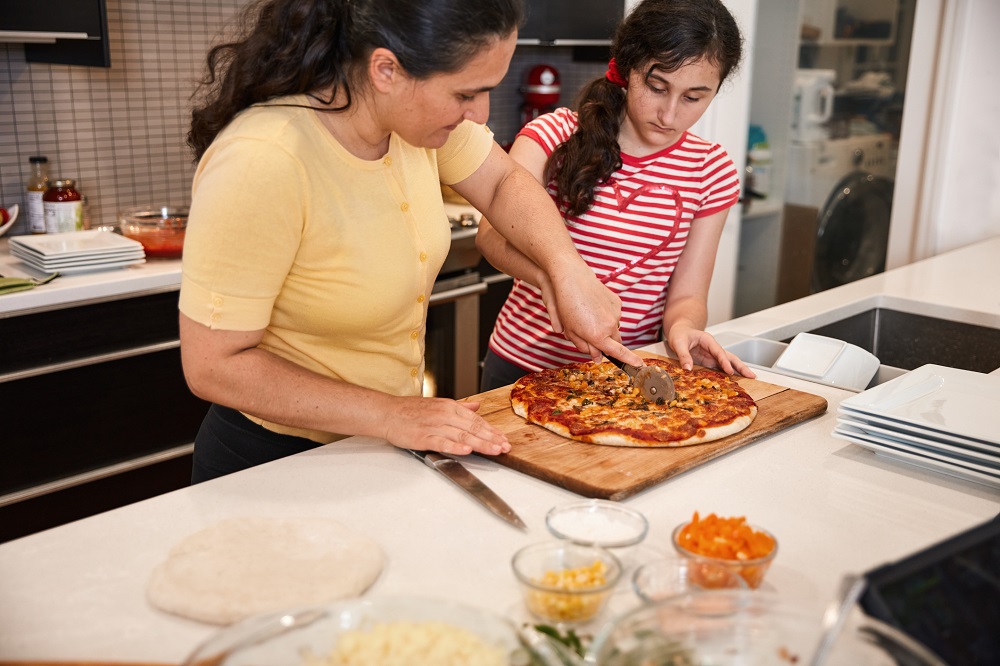
Having fun together is a great way of maintaining that bond with your child. They may not want to go to the play park any more, but there are lots of other ways you can enjoy time together. For example, you could have a movie night, play games or make pizzas. Let them choose what you do – this will help them feel part of the family and less likely to retreat to their bedroom.
As your child moves into their teens, this family time will become an important way of keeping lines of communication open, so try and make sure it stays in the diary.
Tip #3: Don't forget about one on one time
Family time is great, but your teen will probably appreciate having some time on their own with you or your partner as well, away from any brothers and sisters. This will give them a chance to open up in private, and also to feel a bit special. You could try doing something together that they enjoy, or even just popping to the shops. Again, try and make sure you keep spending time together as they get older.
Tip #4: Make sure you know where they are
You want your child to become more independent, but you also want to keep them safe – it’s a tricky balance most parents struggle with. One rule that you might want to have in place is that they always let you know where they are. In fact, research shows that if young people think their parents know where they are, they’re more likely to make better choices.
Tip #5: Take an interest in the things they're interested in

From complicated online games to alternative fashions and weird bands you’ve never heard of, young people’s interests can seem like a strange country to adults – and there’s nothing wrong with that. But try to take an interest in the things your child is drawn to, even if you don’t understand the appeal. They may like the idea of trying to explain things to you.
Tip #6: Set rules
As teens grow up, one of the ways they start asserting their independence is by testing boundaries and seeing how people react. Which means there need to be some boundaries (or rules) for them to test! The teen years bring so many changes – emotional and physical – that having a sense of what’s expected of them can actually help them feel more secure. Just make sure you and partner or your teen’s other parent agree on these boundaries and can stick to them consistently. Our page on setting rules and consequences has tips for putting those boundaries in place.
Tip #7: Show you trust them
If you show your child you trust them, the more likely they’ll be to repay that trust. So as they approach their teens, show you trust them by letting them start to do more things on their own (like going to friend’s houses, playing in the park, going shopping or seeing a film) but on the condition that they come home at an agreed time, and that they always let you know where they are and check in with you regularly so you know they’re safe.
If they get into the habit of checking in with you when they’re younger, they may keep this up as they get older – and this is important because research has shown that teens whose parents know where they are when they’re out and about are less likely to experiment with risky behaviour.
Tip #8: Give them some responsibility
Another way to show that you trust them and can see that they’re growing up is to give them more responsibility. For example, you could ask them to cook a meal, look after a younger child or nip to the shop for you.
Tip #9: Get to know their friends

You may find when your child makes the jump from primary to secondary school that they start to make new friends, and suddenly you can no longer put a face to the names they mention. So try and make an effort to get to know their new friends. No need to throw a party or give visiting kids the third degree! Just let your child know that it’s okay for friends to come round, and try and have a quick, light-hearted chat with them when they’re under your roof.
Tip #10: Try to get to know their friends’ families
Likewise, try and get to know the families of your child’s close friends if you can. Once we stop waiting at the school gates and arranging play dates this can become harder, but it’s a good way of helping to keep our children safe, as it means you’re more likely to know where they are and what they’re getting up to.
You don’t need to socialise with your child’s friends’ parents if you don’t want to – just try and introduce yourself to them if you’re picking up or dropping off at their home, or if you meet at school events.
It can also make it harder for your child to pull the old ‘Alex’s parent lets them stay up until midnight/watch 18 rated films/play violent computer games’ trick if you can call up Alex’s parents and ask!
Tip #11: Remember it's okay to take time to respond to them
If your child comes to you with a problem or worry, don’t feel that you need to sort the situation out immediately. This is particularly important if they’re telling you something upsetting or have broken the rules.
Instead, try giving them a hug (if they’ll let you!) and explaining that you’ll talk about it later when everyone’s had a chance to calm down. If you share parenting, this will also give you time to talk to your co-parent about it and decide how you should react.
Depending on the situation, it’s a good idea to try and encourage your child to solve the problem themselves, rather than waving a magic wand and making everything okay for them. This will encourage them to take responsibility for their actions.
Tip #12: Make sure they know who they can turn to if they need support
It’s important to let your child know that they can always come to you with any problems, or if there’s anything they don’t understand or that’s making them feel uncomfortable. But it’s also good to let them know that there are other adults they can turn to if they don’t want to talk to mum or dad. This could be a relative, a family friend, a teacher – anyone they feel safe and comfortable with.
Tip #13: Encourage them to get plenty of sleep

Because teens’ brains and bodies go through so many changes, they need lots of sleep – growing up is tiring! 14-17 year olds need around 10 hours sleep a night – but can easily sleep longer. To help them get enough sleep, encourage them to get into a good bedtime routine, for example, by avoiding sugar and caffeine and screens in the run up to bedtime and doing relaxing things like having a bath or doing some bedtime yoga instead. Our sleeping tips for older children and teens have more advice.
Tip #14: Encourage them to keep up activities or hobbies or to take up new ones
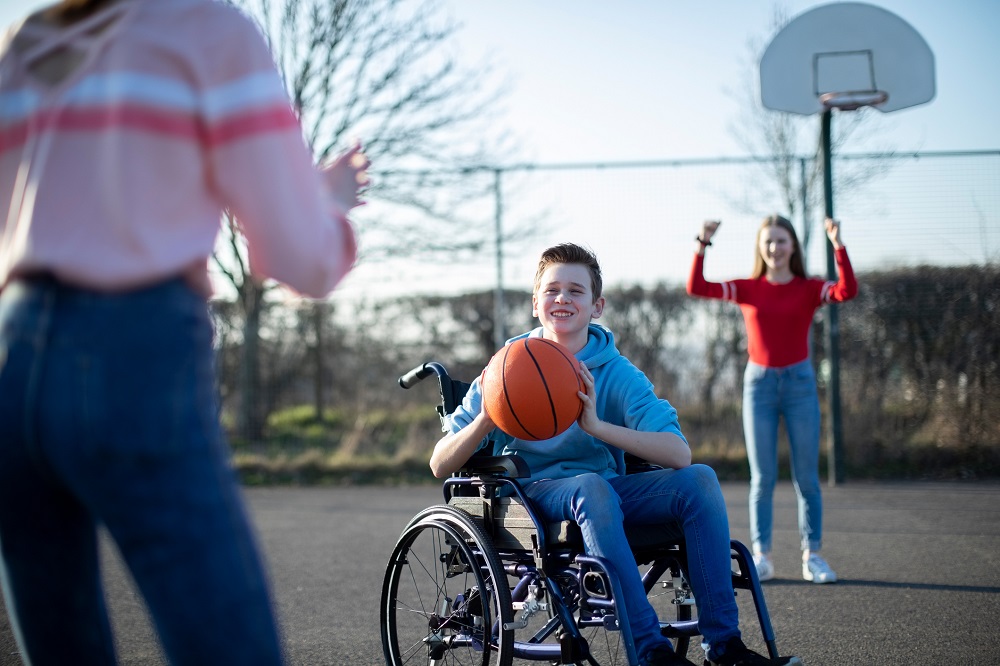
Research has shown that children who spend more time doing activities like sport, dance, music, arts and crafts, Scouts or Guides or volunteering are less likely to experiment with risky behaviours like drinking and smoking. But often they give up these activities in their teens.
So try to encourage them to keep up with activities they enjoy, or to take up new hobbies to replace the ones they’re dropping. Our page on things to do for teens has ideas for new things they could try if they’ve lost interest in the things they did when they were younger.
Tip #15: Accept that stuff happens
No matter how hard you work at your relationship with your child, chances are at some point they’ll break the rules, make mistakes or do something you’re not happy about. So don’t be too hard on yourself (or them) when they do. This doesn’t make you a ‘bad parent’ or them a ‘bad child’ – it’s just a natural part of growing up.
And if things do go wrong, there are lots of organisations offering advice and support, which you can find listed on our page on getting support when you’re raising a teen.
 Activities & Play
Activities & Play Behaviour
Behaviour Childcare
Childcare Development & Growing Up
Development & Growing Up Family, Friends & Relationships
Family, Friends & Relationships Feeding Your Baby
Feeding Your Baby Food & Eating
Food & Eating Health & Safety
Health & Safety Mental Health & Wellbeing
Mental Health & Wellbeing Money & Work
Money & Work Online Behaviour & Safety
Online Behaviour & Safety Pregnancy & First Days
Pregnancy & First Days School & Education
School & Education Sleep
Sleep

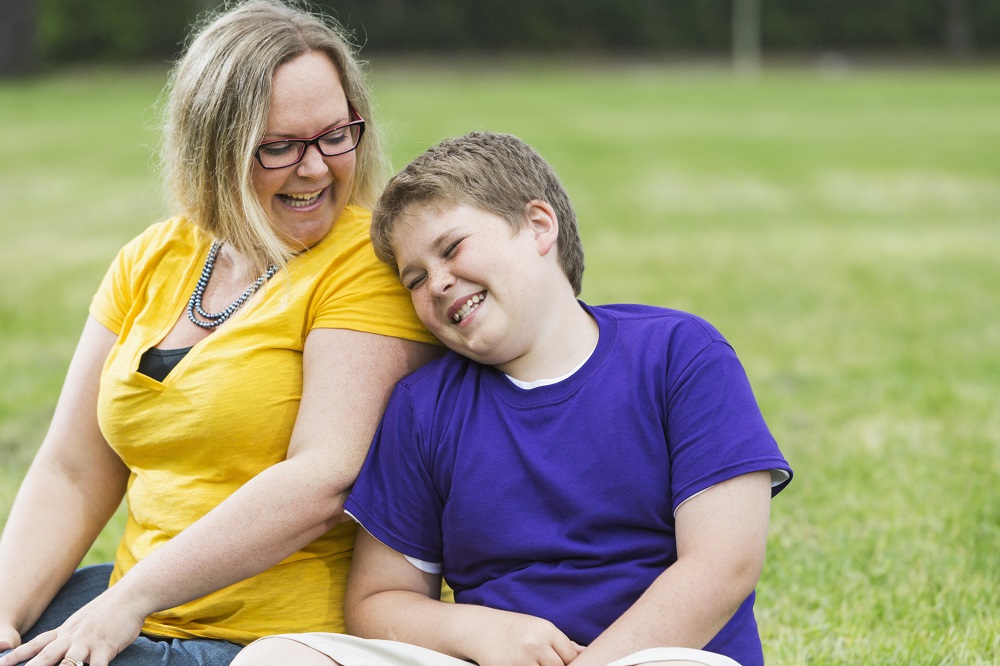
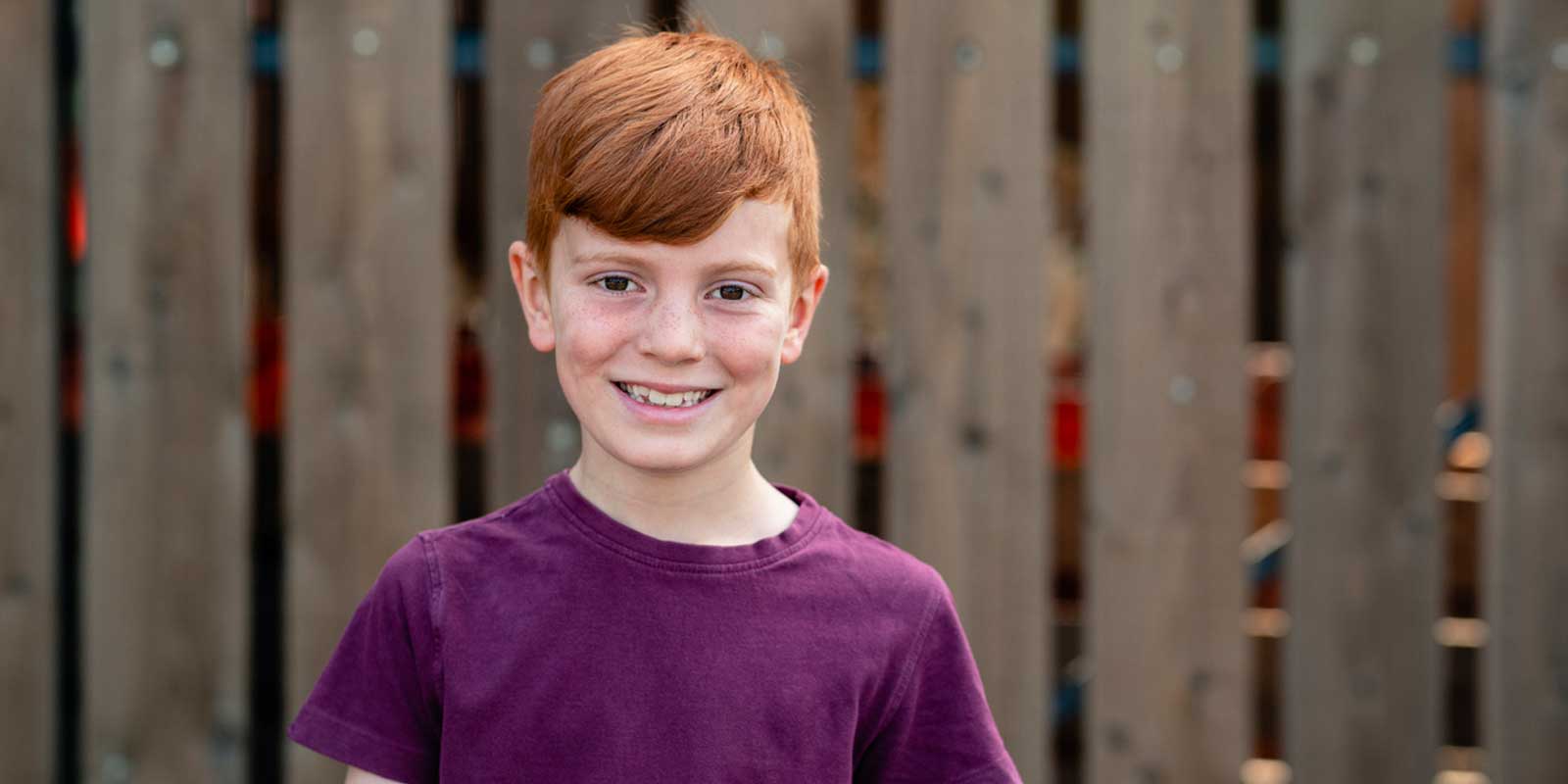



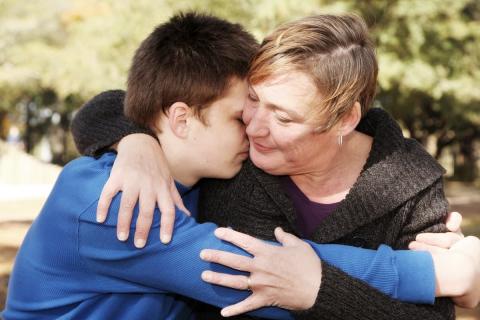
 Mental Health & Wellbeing
Mental Health & Wellbeing
 School & Education
School & Education